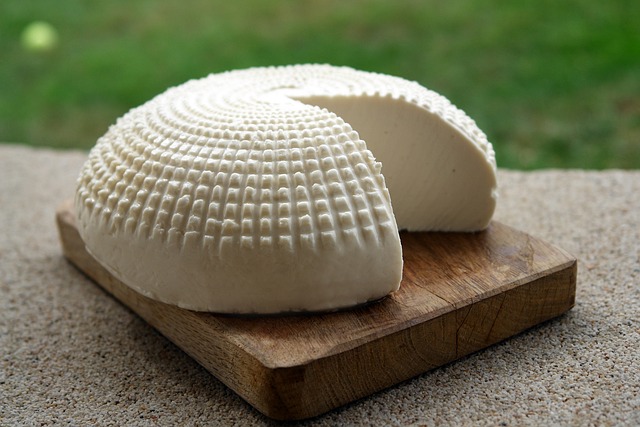

The idea is that the material can guide producers and health inspection bodies on the parameters needed to regularize such a product (photo: ha11ok/Pixabay)
The proposal is being analyzed by an inspection body in the state of São Paulo. In this region alone, there are more than 1,200 informal producers of milk and dairy products with the potential to be regularized.
The proposal is being analyzed by an inspection body in the state of São Paulo. In this region alone, there are more than 1,200 informal producers of milk and dairy products with the potential to be regularized.

The idea is that the material can guide producers and health inspection bodies on the parameters needed to regularize such a product (photo: ha11ok/Pixabay)
Agência FAPESP* – Members of the Brazilian Artisanal Cheese Research Network (Repequab) have developed an analytical protocol to standardize scientific research aimed at evaluating the microbiological safety of artisanal cheeses made with raw milk and matured for less than 60 days.
At the request of the São Paulo Association of Artisanal Cheeses (APQA), the protocol, which includes the stages of applying a checklist to qualify the risk of the product/production process and carrying out microbiological analyses, was published as an experience report in the Revista de Segurança Alimentar e Nutricional.
The idea is that the material can guide producers and health inspection bodies on the parameters needed to regularize a product of this type. Researchers participated from the University of São Paulo (USP), the State University of Campinas (UNICAMP), the Federal University of São Carlos (UFSCar), the Federal Technological University of Paraná (UFTP), the Mauá Institute of Technology in São Caetano do Sul and the Federal Institute of Minas Gerais, Bambuí campus.
The production of raw milk cheeses matured for less than 60 days is permitted in Brazil under specific conditions established by the Ministry of Agriculture and Livestock (MAPA), requiring compliance with a series of legal requirements in addition to those required for other cheeses (made with pasteurized milk or raw milk and matured for 60 days or more), in order to avoid contamination with pathogens that cause diseases such as brucellosis, tuberculosis and other food-borne illnesses.
One of these requirements is the obligation to carry out scientific research proving that raw milk cheese does not pose a health risk, but there are no rules established by MAPA for carrying out these studies. As a result, it is currently up to each inspection body (federal, state or municipal) to determine what it considers to be valid scientific research to prove the safety of cheeses, and this process often takes place after the research has been conducted, when time and financial resources have already been spent.
“There’s a wide disparity of rules between the states, and this is what the protocol aims to standardize, based on what science deems to be safe and what can be adopted by producers, who are mostly small farmers,” says one of the project coordinators, Uelinton Pinto, a researcher at Repequab and the USP Food Research Center (FoRC) – funded by FAPESP through the Research, Innovation and Dissemination Centers program (RIDC).
“One consequence of applying different protocols is that in Santa Catarina [a state in the South region], for example, the ripening limit for a traditional artisanal cheese is five days, while in Minas Gerais [a state in the Southeast region] it varies between 14 and 22 days, but this difference in time doesn’t mean that Minas Gerais cheeses take three times as long to reach the same microbiological safety standard,” explains the project’s other coordinator, Alline Artigiani Lima Tribst, a food engineer at UNICAMP’s Food Studies and Research Center.
The “Scientific Research Proposal to Evaluate the Microbiological Safety of Artisanal Cheeses made from raw milk and matured for less than 60 days, produced in the state of São Paulo” can be viewed at: repositorio.usp.br/item/003155143.
* With information from FoRC, a FAPESP Research, Innovation and Dissemination Center.
Republish
The Agency FAPESP licenses news via Creative Commons (CC-BY-NC-ND) so that they can be republished free of charge and in a simple way by other digital or printed vehicles. Agência FAPESP must be credited as the source of the content being republished and the name of the reporter (if any) must be attributed. Using the HMTL button below allows compliance with these rules, detailed in Digital Republishing Policy FAPESP.





